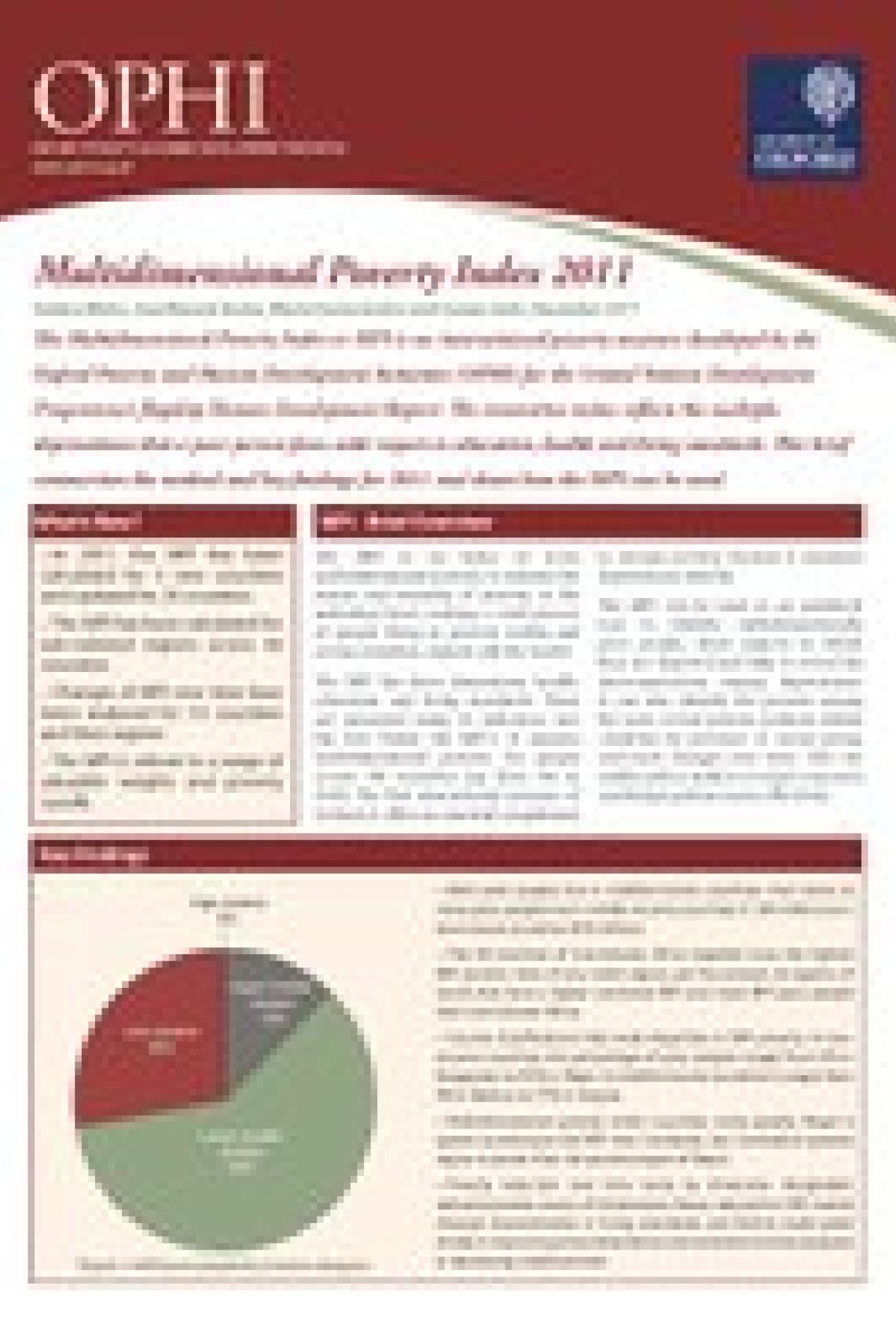OPHI Launches New MPI Data for 2011 at London Policy Forum
The Oxford Poverty and Human Development Initiative (OPHI) released new Multidimensional Poverty Index (MPI) analysis and data for 2011 at a special policy forum in London on December 7.
The MPI is an international measure of poverty for 109 developing countries which complements income-based poverty measures by reflecting the multiple deprivations people face at the same time. Developed by OPHI and first introduced in 2010, it identifies deprivations across health, education and living standards.
The new data for 2011 include the following:
- The MPI has been calculated for 5 new countries and updated for 20 countries
- The MPI has been calculated for 683 sub-national regions across 66 countries
- Changes of MPI over time have been analysed for 10 countries and their regions
- The MPI is robust to a range of plausible weights and poverty cutoffs
Key findings include the following:
- Most MPI poor people live in middle-income countries – as do most 'severely' MPI poor people
- 50% of the MPI poor people live in South Asia and 29% in Sub-Saharan Africa
- Income classifications hide wide disparities in MPI poverty: the percentage of MPI poor people in low-income countries varies from 5 per cent to 92 per cent; in middle-income, from 1-77 per cent.
- MPI varies within countries, sometimes greatly.
- Poverty reduction over time varies by dimension and by region.
Presentations of the new work by Sabina Alkire, José Manuel Roche and Suman Seth were followed by responses from Professor Jeffrey Sachs, Columbia University and Professor James Foster, George Washington University. The panel was chaired by Joanna Macrae of DFID.

